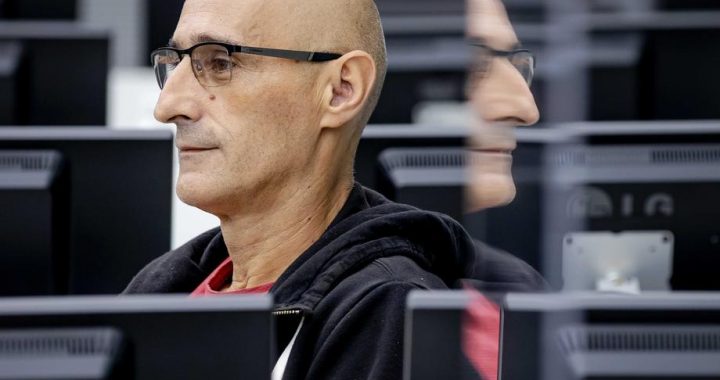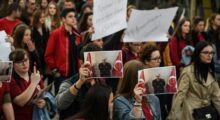Mustafa, known during the 1998-99 conflict by his KLA nom de guerre Commander Cali, was sentenced to 26 years in prison “with credit for the time [already] served [in detention]”. He had pleaded not guilty.
The judges found that Mustafa personally participated in the torture of two detainees and that his failure to order the release of one prisoner directly led to their death.
Judge Veldt-Foglia explained on Friday that around April 19, 1999, Mustafa ordered the release of all detainees but two amid a Serbian offensive around Zllash/Zlash.
“Two specific detainees were not released by Mustafa’s BIA unit subordinates. One of them was seen by other detainees as unable to move, he later was found dead,” the judge said.
The judge explained there were three main causes of death: severe mistreatment inflicted by Mustafa’s subordinates for almost three weeks and denial of medical care, which were directly attributable to Mustafa, and gunshot wounds.
The judges did not exclude the possibility of the gunshots having been fired by the Serbs, but they attributed the death to Mustafa for failing to order the release of the victim or provide medical aid.
Mustafa’s defence had attempted to establish that he was not present at the KLA compound in Zllash/Zlash during the detention and torture of the civilians. However, the judges decided that “the evidence for the alibi was vague and inconsistent”.
Most prosecution witnesses in the trial testified anonymously under protective measures. Veldt-Foglia said that they testified despite “fear and intimidation” because “they are labelled in Kosovo as traitors”.
“They live in constant fear that something will happen to them and their families,” she added.
The Specialist Chambers are part of Kosovo’s judicial system but are located in the Netherlands and staffed by internationals, established under pressure from the country’s Western allies, who believe Kosovo’s own justice system is not robust enough to try KLA cases and protect witnesses from intimidation.
However, many Kosovo Albanians believe that the court is ethnically biased and denigrates the KLA’s just war against Serbian repression.
Before announcing the verdict, judge Veldt-Foglia said that the idea that the charges were “against the KLA and the people of Kosovo as a whole” was a misconception caused by misinterpretation of the term ‘joint criminal enterprise’ by certain Kosovo media outlets, commentators and politicians.
“At no point there was the KLA on trial, but Salih Mustafa,” Veldt-Foglia insisted.
The verdict can be appealed.
























